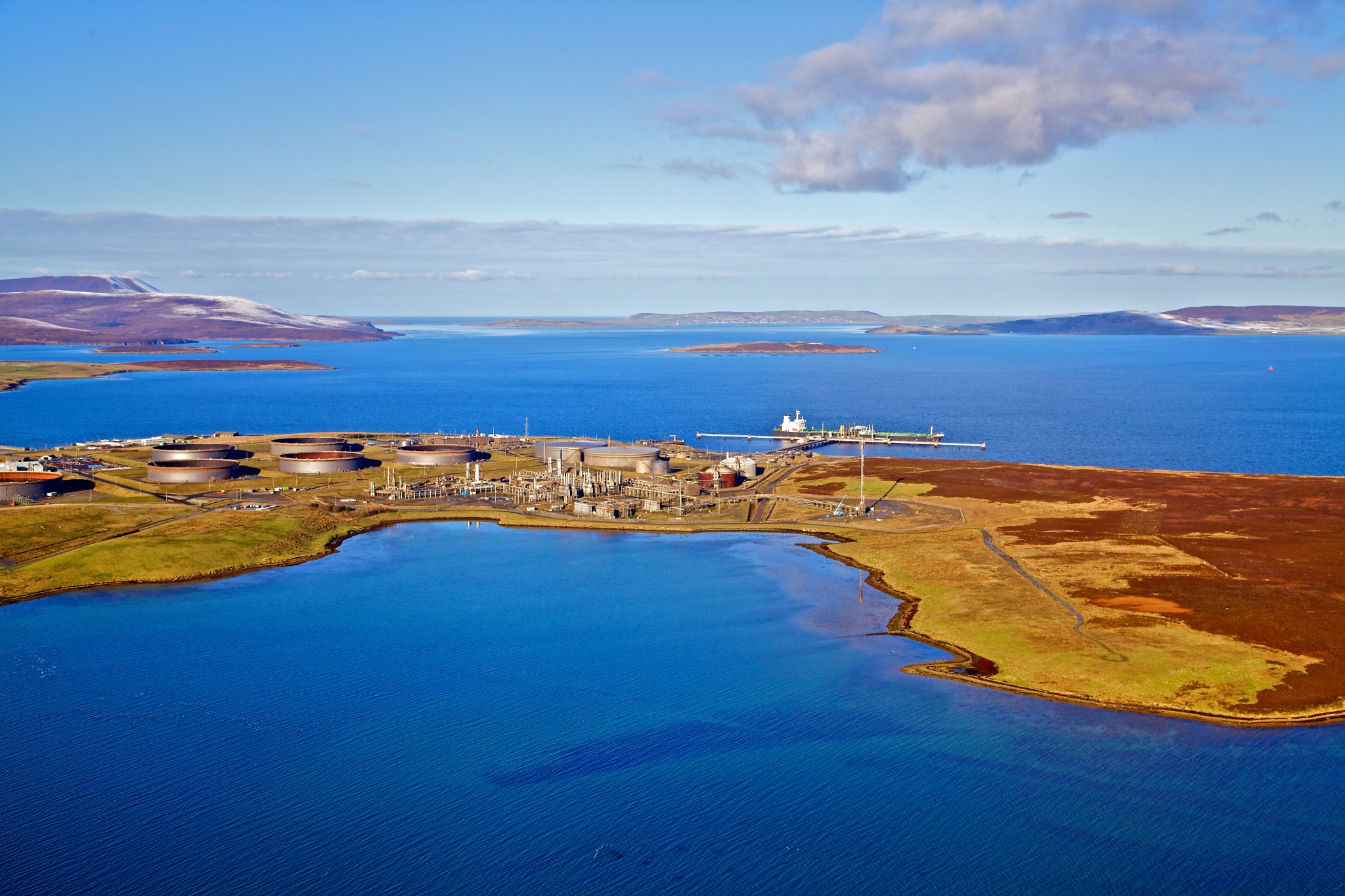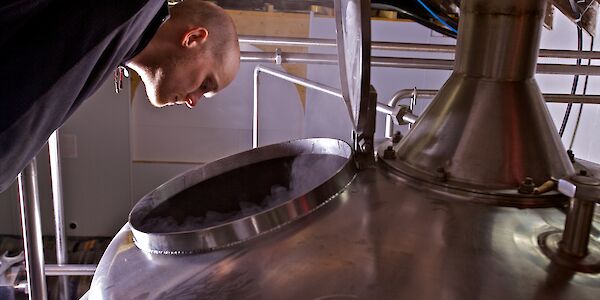Orkney’s renewable energy credentials continue to make the headlines on a global stage, but a background in oil and gas activity has also brought huge benefits to the local economy for nearly five decades.
Flotta Oil Terminal
Oil first came ashore in Orkney in the late 1970s at the newly commissioned Flotta Oil Terminal. At its peak, the terminal processed 400,000 barrels of crude oil from the North Sea fields east of Aberdeen annually. Local workers continue to be employed at the 385-acre site on the island of Flotta, which sits at the heart of Scapa Flow, providing easy and safe access for tankers and other oil and gas-related shipping.
Scapa Flow, Orkney's natural harbour
Scapa Flow is Orkney’s hub for oil and gas operations. Vastly experienced Orkney Harbour Authority towage and pilotage services are available around the clock and ship to ship transfers of crude oil have taken place in this natural harbour for more than forty years. You’ll often see tankers and tugs at work in the safe waters of the Flow - in the last decade alone more than 28 million barrels of oil have been safely transferred in Scapa Flow.
It was also the location for the world’s first ever ship to ship transfer of liquified natural gas (LNG) in 2007, and liquid petroleum gas was transferred for the first time here in 2016 too.
Scapa Flow has also recently become a regular home to a range of semi-submersible vessels that usually work in the North Sea and West of Shetland fields. The safe waters of the Flow provide ideal anchorages for maintenance and crew changes. Since 2015 these unique vessels have become a near-constant sight on the horizon.


